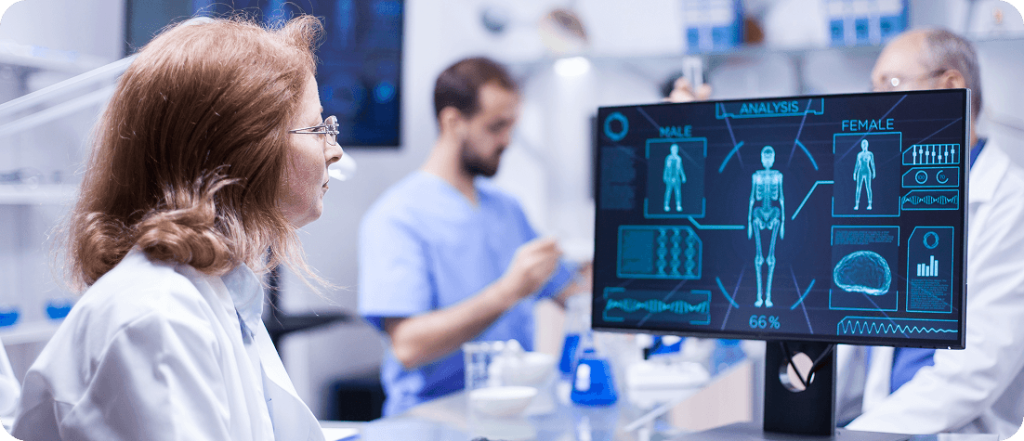- Medical Innovation
The Role of Artificial Intelligence in Early Disease Detection
Published on: March 12, 2025
Author: dr. Alicia Ward
In this article, we explore how AI is revolutionizing disease detection, from identifying cancer at early stages to predicting Alzheimer’s risk—empowering doctors with faster, more accurate tools.

Artificial Intelligence systems, particularly those based on machine learning, are trained on large datasets of medical images, patient records, genetic information, and clinical notes. Over time, these algorithms learn to recognize patterns and anomalies that may be difficult for the human eye to detect. For example, an AI model can examine thousands of mammograms to identify tiny changes in breast tissue that might indicate the early stages of cancer.
Detecting Cancer Early
One of the most promising applications of AI is in oncology. AI can detect early signs of various cancers—such as lung, skin, and breast cancer—by analyzing imaging scans like X-rays, CT scans, or MRIs with exceptional accuracy. In many cases, AI has shown performance comparable to, or even exceeding, that of experienced radiologists. This leads to faster diagnoses and earlier treatment, which significantly improves survival rates.
AI and Alzheimer’s Disease
Detecting Alzheimer’s in its early stages is notoriously difficult, as symptoms often appear gradually and can be mistaken for normal aging. AI tools can now analyze brain scans and speech patterns to spot early markers of cognitive decline long before symptoms become obvious. Some models also use blood biomarkers and genetic data to predict the risk of developing Alzheimer’s years in advance, enabling preventative strategies.
Advantages of AI in Early Detection
Speed and efficiency: AI processes data much faster than humans, leading to quicker diagnoses.
Improved accuracy: Algorithms reduce the likelihood of human error and can catch details that might be overlooked.
Wider accessibility: AI tools can be deployed in remote areas where access to specialists is limited.
Personalized care: AI systems can tailor screening and prevention plans based on a patient’s unique risk factors.
Challenges and Ethical Considerations
Despite its promise, AI in healthcare also faces challenges. Ensuring patient privacy, data security, and the ethical use of AI in decision-making are ongoing concerns. Moreover, AI should be seen as a support tool—not a replacement—for medical professionals.
AI is revolutionizing early disease detection, offering new hope for patients by identifying conditions earlier than ever before. As technology continues to evolve, the integration of AI into everyday medical practice holds the potential to save countless lives and improve global health outcomes.
Related Articles
The healthcare experience is undergoing a major transformation, driven by advances in…
AI systems, particularly those based on machine learning, are trained on large…
As of May 2025, several significant disease outbreaks are impacting global health.…


